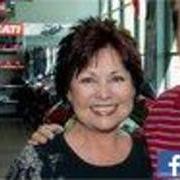Someone you love gets diagnosed with cancer and suddenly, unexpectedly, you become a cancer caregiver. Without any preparation or planning, you are now responsible for shepherding someone through what is likely the most terrifying experience of their life. It is a challenging duty and an extraordinary honor. And, although each situation is unique, here are some clues that are helpful to most people in this situation.
Clue #1: In order to help, you must be well and stay well. If you become ill, you cannot help the person you’re caring for and could make the patient sicker. Caregiving can be physically and emotionally draining; demanding long, stressful hours that make you more vulnerable to illness. Get a health checkup for yourself early on. Stay committed to your sleep, exercise and nutrition while being mindful of fatigue or other changes you experience. Any medical conditions you have, such as diabetes or cardiac issues, must be monitored carefully.
Clue #2: It’s complicated, so organizing records from the start is imperative. Create contact lists of all doctors, labs, clinics, and all other practitioners involved in treatment. List all drugs with dosages, treatment schedules and even chemo protocols. List family members’ information, should contacting them be necessary.
Clue #3: You don’t have to do it alone. Get creative and get help. Suggest ways friends and relatives can help with routine tasks, like grocery shopping. (Note: the better organized you are, the easier it is for others to help.) Determine the patient’s insurance coverage of supplemental medical support, such as home nursing and mental health services. Get a caregiver guidebook from experts in cancer caregiving.
Clue #4: Be flexible. You’ll act in many different capacities as a caregiver, from emotional sounding-board to doctor-visit buddy. Also, your role will shift as conditions change; affecting the scope and even length of time you’re needed. By anticipating change, you will be better able to respond to it; not just react to it.
Clue #5: Your caregiving role is your journey. Be “present” in the experience, living fully through one of the most generous acts of kindness there is: helping a loved one cope with cancer. If you begin to feel overwhelmed, get professional help so that you are able to nurture your own energy as well as honor your relationship with the patient.
Caregiving is more than the tasks of treatment; it is an essential part of survivorship. When you open yourself to someone facing cancer, you become part of their healing and part of the greater human spirit of giving.
An excellent caregiving guide is available at: http://www.cancercompass.com/cancer-guide/caregivers.html





Add a Comment1 Comments
Thanks for these informed and very helpful tips, Annette. It can be difficult explaining to someone that there really is nothing that can prepare you for the magnitude of life changes that take place with a cancer diagnosis. I have a good friend who is her husband's caregiver right now, and I'm amazed sometimes by what she goes through in supporting his journey with brain cancer.While friends who have regular lives sometimes take my personal journey with cancer for granted, this friend does not, and she takes the time to check in on me and say, in a joking way, that I have a double whammy in terms of being both the patient and the caregiver and she wants to be sure that I'm taking good care of me/my patient. Her gentle reminders help me keep my priorities in order, as does your writing which always stimulates good thoughts about healing.
June 1, 2010 - 6:57pmTake care and keep writing, Pat
This Comment